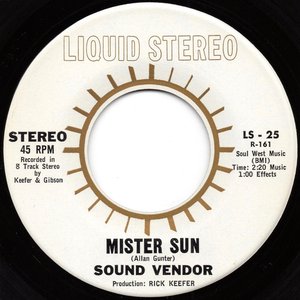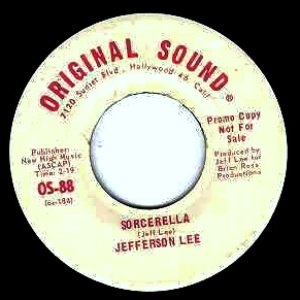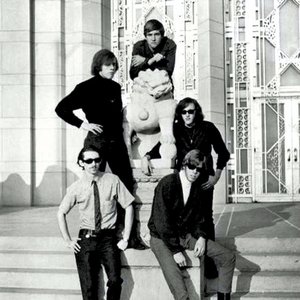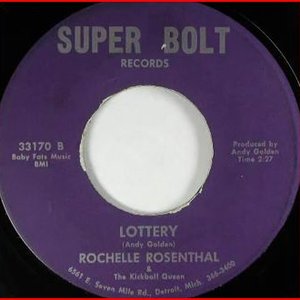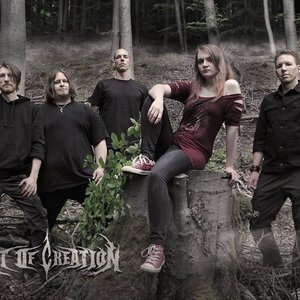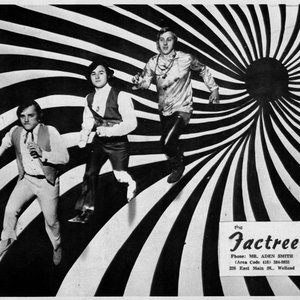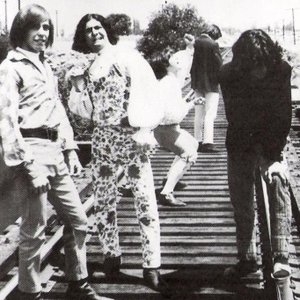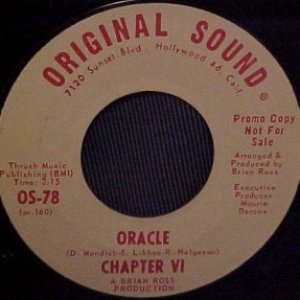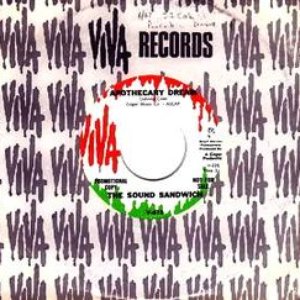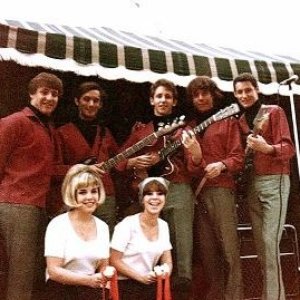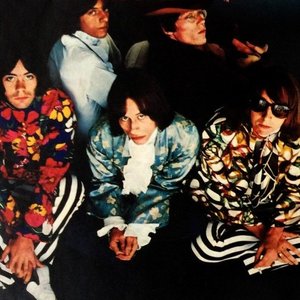Biography
-
Years Active
1967 – 1970 (3 years)
-
Founded In
Morgantown, Monongalia County, West Virginia, United States
-
Members
- Jack Bonasso
- John Vaughan
Mind Garage is a five-man psychedelic rock and roll band from Morgantown, West Virginia, and progenitor of Christian rock music.
The Mind Garage 1967-1970
In July 1967, the Glass Menagerie group disbanded after touring the Midwest, and Larry McClurg, Jack Bond, and Norris Lytton returned to Morgantown where they were all students at West Virginia University. Jim Straub, drummer, left for parts unknown. John Fisher, lead guitar, joined the Shadows of Knight as a bass player from 1967-1971. At the University, Larry, Norris and Jack met John Vaughan, Ted Smith and the fiery, young, controversial and imaginative campus minister, Reverend Michael Paine. Soon a new, as yet unnamed band was formed. Reverend Paine's wife, Tori, named the band the Mind Garage.
Christian Rock Genre
Christian rock music did not exist in 1967 for mainstream American media. The Mind Garage is perhaps the first Christian Rock band , with documentation going back to 1967 in local media and national magazines and newspapers and television such as The Village Voice, Billboard and Rolling Stone magazine, ABC and NBC TV. Because the Mind Garage never limited itself to one kind of music, in 1967 at the suggestion of Reverend Paine, in the tradition of Bach who used popular tavern songs in his music, the psychedelic hard rock band began writing rock music for church in Reverend Paine's attic, with a serious intent to get the message across. They took Rock 'n Roll into churches, playing an actual Mass with communion. The music they created was named the Electric Liturgy, and subtitled A Festival of Feeling, The Electric Mass.
The premier performance, originally scheduled on West Virginia University property was cancelled when university administrators backed out of the previous arrangement with Reverend Paine and declared the performance unconstitutional. Reverend Paine then bargained with the First Presbyterian church to use their parking lot. In the mounting tension the church elders refused to allow the band to use the church facilities when the local paper ran a photo of the Mind Garage in a tree with Reverend Paine and friends standing about. At the last moment Reverend Jennings Fast of Wesley Methodist Church provided a place for the service. Then, as cymbals crashed and voices called for love and thanksgiving, babies squealed and happy smiles spontaneously flickered across the congregation, those dirty, beatnick-hippies began to have a new image. "I didn't know they were like THAT," one woman exclaimed, "That was beautiful!"
By July 1968, the term "theo-rock" was coined in the Village Voice in reference to The Mind Garage music. By the end of 1968, the Mind Garage had performed the "Electric Liturgy" live more than a dozen times, in Episcopal, Catholic, Presbyterian, Baptist and Methodist churches, each time with people dancing in the aisles. Each time, the services were attended by Christians and non Christians alike in a communal celebration of life.
Mind Garage: First nationally televised Christian Rock worship service
The persistent efforts by the Mind Garage to contemporize religious music succeeded in church after church, state after state. They broke the barrier between church and rock and roll, creating an environment where Christian Rock, a new genre of rock music could thrive.
The first nationally televised Christian Rock and Roll worship service was given by the Mind Garage in St. Mark's Episcopal church in New York on ABC TV April 27, 1969, catapulting Christian Rock into the mainstream.
The Electric Liturgy, recorded for RCA Victor (LSP-4319) in 1969 was the first Christian Rock album recorded in Nashville at RCA's "Nashville Sound" Studio A, on Music Row, foreshadowing CCM. It was a godsend that gave Christian Rock music a whole new distribution beyond the traditional Christian marketplace.
Electric Mass Experience
An award winning article by Joyce Tracewell describes the Electric Mass. "Sun shines through stained glass and colors bounce until the kaleidoscopic vision is suddenly shattered by incredibly swelling music. Smiling musicians with flowery clothes, jeans, long hair, beards and sunglasses play deliberate alien music, the kind that makes you shiver. It fills the room to the ceiling pushing against the walls. They sing in voices that should have belonged to Druids or Incas, or Gypsies under a night sky, and you see Jesus smiling at them. When you leave you feel somebody has been dissecting your soul and everything is clearer. And that's what an Electric Mass is."
Impact on Religion
The Electric Liturgy was conceived in 1967 as an orthodox Episcopalian service, but was immediately transformed into an inter-denominational service by the people themselves. It was not uncommon to witness Episcopalians, Catholics, Protestants and Jews together, all taking Communion. People who were out of religion found a meaning in the music.
The church programs explained that "the Holy Communion is the Creator's act through His people of binding the wounds and healing a broken humanity. Sometimes it is a party, sometimes not. But participation in it signals your desire to take on hope. Therefore all people confessing their frail humanity and yearning for a greater are welcome to come to the altar and receive Holy Communion."
The Electric Liturgy became so popular the band was invited to perform the service in churches throughout the Eastern United States including Washington, D.C., New York, and Princeton University Chapel. The Electric Liturgy was shocking. Dean Ernest Gordon of Princeton University said, "We could all do with a shocking splendid spiritual surprise."
Controversy
The most famous Mind Garage poster was controversial and depicts a semi-nude woman surrounded by the group. However, it was used several times as the cover for service booklets, most notably in St. Mark's Episcopal Church in the Bowery, New York City. The design was too controversial for most church bulletins in mainstream conservative America of 1968, so a variation of the poster, was made by covering the woman with a banner saying, "Welcome to the Electric Liturgy".
Mind Garage Signs with RCA
While still known only locally, the Mind Garage recorded an original single 45 rpm "Asphalt Mother", and drew the attention of major record companies like Chess Records, Atlantic Records and RCA. Marshall Chess came to see the band expecting to hear blues and went away baffled as to the kind of music they played. Atlantic Records wanted to sign only the lead singer, Larry McClurg, but he refused to leave the band. Meanwhile, the Mind Garage continued to play the Electric Mass in church services for free wherever asked, while at the same time shocking and entertaining the audiences in clubs, concert halls and stadiums with their own style of secular, psychedelic rock. The group's newly acquired manager, Tom Surman, aka Cossie, negotiated a contract for the entire band with RCA, the largest record company in the world. The Mind Garage signed with RCA in 1969, and recorded two albums and two singles in New York, Chicago and Nashville studios.
Armed Forces Radio and Television Service entertained troops at home and abroad in Vietnam with the music of the Mind Garage and other artists such as Gary Lewis, Bob Seger, and Percy Faith. The Mind Garage often appeared with groups such as Canned Heat, Sly and the Family Stone, Paul Butterfield, all of whom played at Woodstock 1969, but the Mind Garage declined the invitation themselves to play at Woodstock Festival. In 1970, when their recording contract was about to expire, RCA offered to renew it but the band declined. Then without explanation they walked away from a recording career, and simply stopped playing. The band never officially broke up. There was no press release, and no dispute among members, or management. Drummer Ted Smith, acknowledged by the Zildjian cymbals as one of the best drummers in the world, continued his career with the Spinners as tour drummer for the next several decades, and can be heard on the Spinners "LIVE" album (Atlantic SD 2-910-1198).
For as little time as the Mind Garage performed, the fresh, unique style and energy had a ripple effect that, even without a #1 hit, continued to influence groups from one end of the musical spectrum to the other long after they had stopped recording. The Fleshtones from the 70's era of Punk rock and New Wave music credited the Mind Garage as an influence.
John Denver, noted folk singer, listed the Mind Garage members in the liner notes of his 1982 vinyl Gold record "Seasons of the Heart" for contributing to the album.
Composite Concert Review
A Mind Garage concert was often billed a celebration of life, a total electric happening. Graffiti Magazine reported, "their musicianship was stunning and their stage presence was natural and unpretentious."
But a Garage performance could be so much more. People would not only be stunned by the musicianship, but they would experience shock. It was then that they would be overcome by the band's sincerity and superb musicianship. They were able to draw people into what they were doing. The intent was to involve all the senses. The band had the power to transform the places they played in and the people they played for with a primal heartbeat rhythm, an exacting, instrumental harmony and a rising pitch that reflected or drove the intensity of the audience. The visual theatrics seem to invoke "the forces of nature to come crashing down," reported Hit Parader Magazine (September 1970). Then they would play soft familiar passages to bring the listener back to earth.
Mind Garage was not the usual frat party or sock hop band of that period. They took over with mind blowing techniques. Hours before the show, people would arrive to get a good seat only to find a crowd already there. People would push and shove to get in until the doors finally burst open. The entire street would fill up and police would give up trying to keep some sense of order and took to re-routing traffic. Sites would pack beyond capacity at many of the venues with people spilling out the doorways. Getting in the door insured the participant some form of entertainment. In the Fairmont Theatre lobby, someone was seen in a tub taking a bath. Nothing ever seemed to be routine at these engagements.
On occasion there were other performers, light shows, bizarre, psychic, fashion shows and dancers, but the Mind Garage was always the central focus. General comment from rockers would float around in conversations while the band was on break. It usually would be summed up in the only way they knew how to express it, "Man, these guys are f—ing good!"
The Mind Garage not only had the right sound but they had, it seemed, much more - a spiritual spark, a magnetic charisma, a mesmerizing magic. It moved cynic; it moved saint. Mind Garage would become the proto-Christian music rock band for the wave of Jesus music that would follow them.
Reunion
Mind Garage at Goodstock Music Festival
In 2007 all five original band members reunited for a music festival. The Father of Woodstock Artie Kornfeld teamed up with Larry McClurg to promote Goodstock Music Festival, reported Pollstar.
According to Kornfeld, "I consider Goodstock to be the first real attempt to have another 3 days of peace and music". "When everybody's doing Woodstocks in 2009, I'm going to be doing Goodstock -The Woodstock Reunion 2009, and that's my dream for Larry and I to have.
Members
* Larry McClurg - lead vocals
* Norris Lytton - vocals, bass and sax
* Ted Smith - percussion
* Jack Bond - vocals, keyboard
* John Vaughan - vocals, lead guitar
Artist descriptions on Last.fm are editable by everyone. Feel free to contribute!
All user-contributed text on this page is available under the Creative Commons Attribution-ShareAlike License; additional terms may apply.

